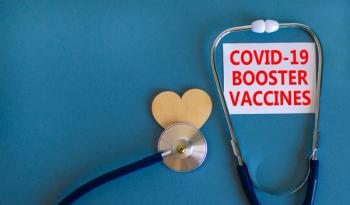
HHS Urges Payers Make Reasonable COVID-19 Vaccine Prices, Continue Coverage Once Government Supply Ends
Most private health insurance plans are required to cover vaccines for COVID-19 without patient cost-sharing.
In two separate open letters, officials from the U.S. Department of Health and Human Services reminded payers of their responsibility to cover COVID-19 vaccines when government supply ends and urged vaccine makers to set reasonable prices.
While COVID-19 vaccines are currently free and widely available nationwide, government payment for the vaccines ends Sept. 30, 2024,
“Through that day, the federal government will match state expenditures on COVID-19 vaccine doses and vaccine administration at 100%,” Brooks-LaSure noted.
Most private health insurance, such as employer-sponsored plans, Marketplace plans, are required to cover vaccines for COVID-19 without patient cost-sharing, Brooks-LaSure wrote.
For children in the Medicaid program, the cost of COVID-19 vaccine will be covered by the Vaccines for Children (VFC) program after the government supply ends and would be federally funded.
For other Medicaid populations, and for beneficiaries enrolled in CHIP, states will pay COVID-19 vaccines after federal supply ends. But payments on those doses will be federally matched at 100% until Sept. 30, 2024, Brooks-LaSure wrote. Starting Oct. 1, 2023, under amendments made by the Inflation Reduction Act, most adults enrolled in Medicaid and CHIP will have mandatory coverage of all approved vaccines recommended by the Advisory Committee on Immunization Practices without cost-sharing.
“After Sept. 30, 2024, state expenditures on COVID-19 vaccine doses and vaccine administration services would be matched at the applicable state federal medical assistance percentage,” she noted.
Meanwhile, HHS Secretary Xavier Becerra said an
“Price gouging behavior takes advantage of the trust the American people have placed in you through the COVID-19 response. In the coming weeks and months, we anticipate that you will work with the CMS and other payers to ensure that they have the required information to make payments for the updated vaccines this fall,” Becerra wrote.
Additionally, HHS expects that vaccine manufacturers planning to offer updated COVID-19 vaccines are preparing an ample supply of doses for the upcoming season.
Additionally, HHS’s
“Part of the program is expected to provide support for the existing public sector vaccine safety net…Under this part of the program, similar to the Vaccines for Children Program, the CDC intends to purchase vaccines from the manufacturers. The second part of the program is designed to facilitate access to vaccines that manufacturers have previously committed to provide for uninsured adults, as well as those whose insurance does not fully cover COVID-19 vaccination. That part of the program will be supported via a partnership between the Federal government and pharmacies, and not with the manufacturers,” Becerra wrote.
Newsletter
Get the latest industry news, event updates, and more from Managed healthcare Executive.























